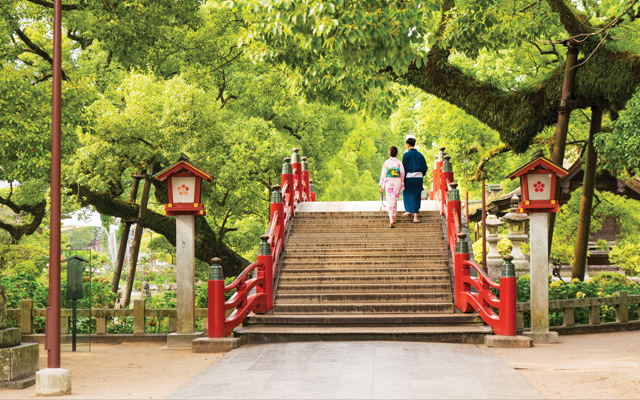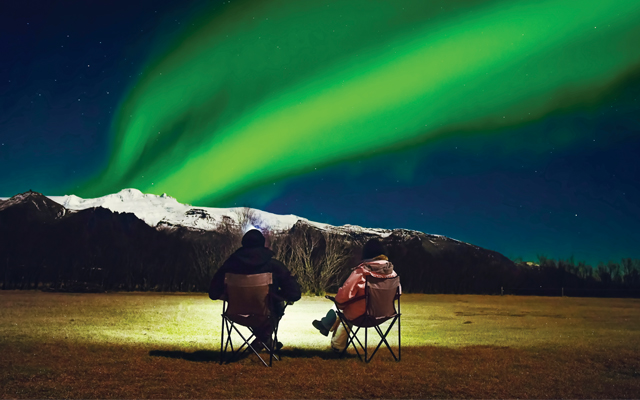Travellers will be expanding their itineraries to less crowded hidden gems, savouring their holidays at a slower pace, embracing all-inclusive resort stays, and tracking down speciality local goods, say travel trend studies for 2025
Venture farther
Driven by both a desire to not contribute to overtourism and to broaden their horizons while on holiday, more consumers are making a conscious effort to visit less touristy destinations in 2025.
According to the Skyscanner Horizons: 2024/5 report, travellers are increasingly interested in exploring lesser-known destinations, with 27 per cent of Asia-Pacific respondents expressing intentions to visit these areas. This intention is strongest among South Korean travellers.

Unpack ’25, Expedia Group’s annual data-driven outlook on travel motivations, also spotted a rising trend for what it terms, Detour Destinations. Travellers will not skip tried-and-true tourist destinations in 2025, but will add on less crowded and lesser-known places that are close to popular hotspots.
Based on flight searches, Expedia has identified some top trending Detour Destinations in Asia-Pacific. They are Fukuoka, Japan as a detour from Tokyo; Abu Dhabi, the UAE as a detour from Dubai; Krabi, Thailand as a detour from Phuket; and Waikato, New Zealand as a detour from Auckland.
Slow and meaningful
Back in 2019, Skyscanner spotlighted the growing preference for slow travel, where travellers throw out packed itineraries to truly savour the moment.
At the same time, the term JOMO – joy of missing out – took hold among travel marketers, content creators and consumers, further highlighting the value of escaping the hustle and bustle of city life and priortising quality travel experiences.

Five years on, JOMO is still here to stay, observed Vrbo, an online marketplace for vacation rentals that is owned by Expedia Group. Sixty-two per cent of respondents in the Unpack ’25 study say JOMO trips reduce stress and anxiety, and nearly half say that it enhances quality time with loved ones. Such trips can be found by staying in cosy cabins, peaceful beach houses, or secluded lakeside lodge that are equipped with all the amenities to help them unwind.
It is clear that travellers are strategic about what they are choosing not to miss out. Booking.com ’s annual Travel Predictions research highlights a firm recognition that holidays are more than just a time to unwind. Sixty per cent of travellers want a longevity retreat -– a super-charged flex on traditional well-being itineraries that could include body vibration (61 per cent) and red light therapies (54 per cent) to cryotherapy (51 per cent) and stem cell treatment (51 per cent). More than two thirds of respondents want new wellness activities that can be mix into their daily lives. In this region, travellers say they are willing to pay for a holiday that is solely meant to extend their lifespan and well-being.
Natural pursuits
Expedia Group found that droves of travellers booked private holiday homes along the path of totality to see the total solar eclipse in 2024, proving people will travel great distances to see natural phenomena in real life. Unpack ’25 study revealed that the Northern Lights (61 per cent) are the top phenomenon travellers want to see, followed by geological phenomena (30 per cent) like volcanoes, geysers and hot springs. In Asia-Pacific, travellers will be drawn to Hokkaido, Japan to witness the graceful ballet of Red-crowned cranes and Melbourne, Australia for the adorable penguin parade.
The fascination for nature’s greatness is also picked up by Booking.com, which spotlights the trend towards noctourism – trips that are tailored around night-time activities. Two thirds (67 per cent) of respondents are considering visiting dark sky destinations in 2025, with star-bathing experiences (76 per cent), star guides (66 per cent), constellation tracking (62 per cent), and once-in-a-lifetime cosmic events (61 per cent) topping the stellar adventure list.
Concerns around climate change have also influenced this shift, with 57 per cent planning to elevate their night-time pursuits to avoid rising day-time temperatures and 56 per cent preferring to take their holidays in cooler locations. An appreciation for the nocturnal world is also deepening travellers’ connections with nature, as the majority of travellers (60 per cent) say they would book an accommodation without lights to encourage less light pollution and preserve flora and fauna.

All-inclusive attention
According to Unpack ’25, the year 2025 will be the all-inclusive era, as more Gen Z travellers discover the appeal of all-inclusive accommodation options. The report stated that all-inclusive resorts were no longer just attracting families looking for fun in the sun by the pool, but also younger travellers who want stress-free stays and a good deal that still feels luxurious.
One-third of Gen Z travellers say their perception of all-inclusive hotels has changed for the better, and 42 per cent say an all-inclusive resort would be their preferred hotel type.
Precious procurement
Shopping on holidays are turning a refined turn, as more travellers make time during their trip to pick up local speciality goods, from viral chocolate bars from Dubai and butter from France to skincare products from South Korea and tea leaves from China.
Some travellers, according to Expedia’s Unpack ’25, are even creating entire trips around getting the goods.
The study found that 39 per cent of travellers visit grocery stores or supermarkets while 44 per cent shop for local goods they cannot get at home.
The love for Goods Getaways, as Unpack ’25 terms this trend, extends to experiences unique to the destination, such as coffee tours in Costa Rica, tea tastings in China, and matcha experiences in Japan.

Taste paradise
Food is the biggest decision-making factor when choosing a destination, finds Skyscanner Horizons: 2024/5. Two thirds of Asia-Pacific travellers agreed that food is important when picking a holiday destination – this consideration triumphs over weather (55 per cent), natural landscape (55 per cent), the attractions (54 per cent) and culture (54 per cent).
Echoing this observation is Hotels.com’s findings that point to travellers seeking standout hotel dining experiences and making dinner reservations when planning ahead for their holidays.
Nearly a third of travellers say room service from a famous hotel restaurant would make them more likely to book, while 31 per cent say restaurant tables reserved exclusively for hotel guests would be their top reason.
Attention to hotel dining is also reflected in the rise in positive reviews about hotel restaurants, chefs and bars on the Hotels.com website.











